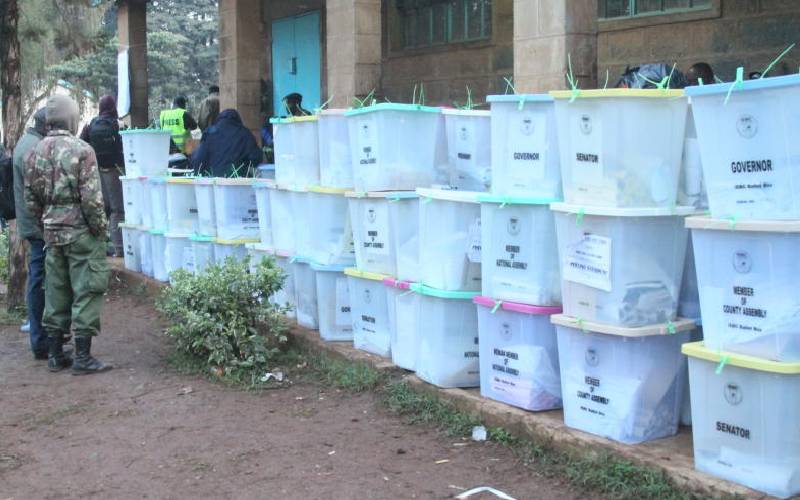×
The Standard e-Paper
Stay Informed, Even Offline

Ballot boxes during the general election 2017. [Bonface Okendo, Standard]
Details of exaggerated prices of election materials and infighting among top officials over multi-million shilling tenders have exposed the electoral agency to funds wastage.